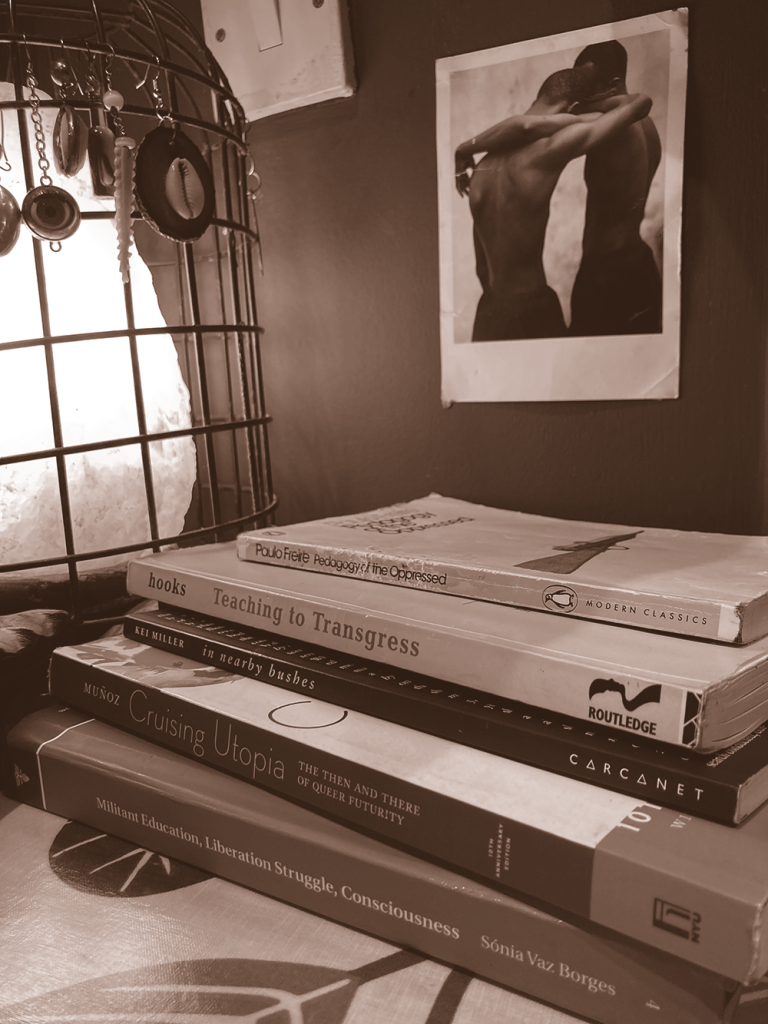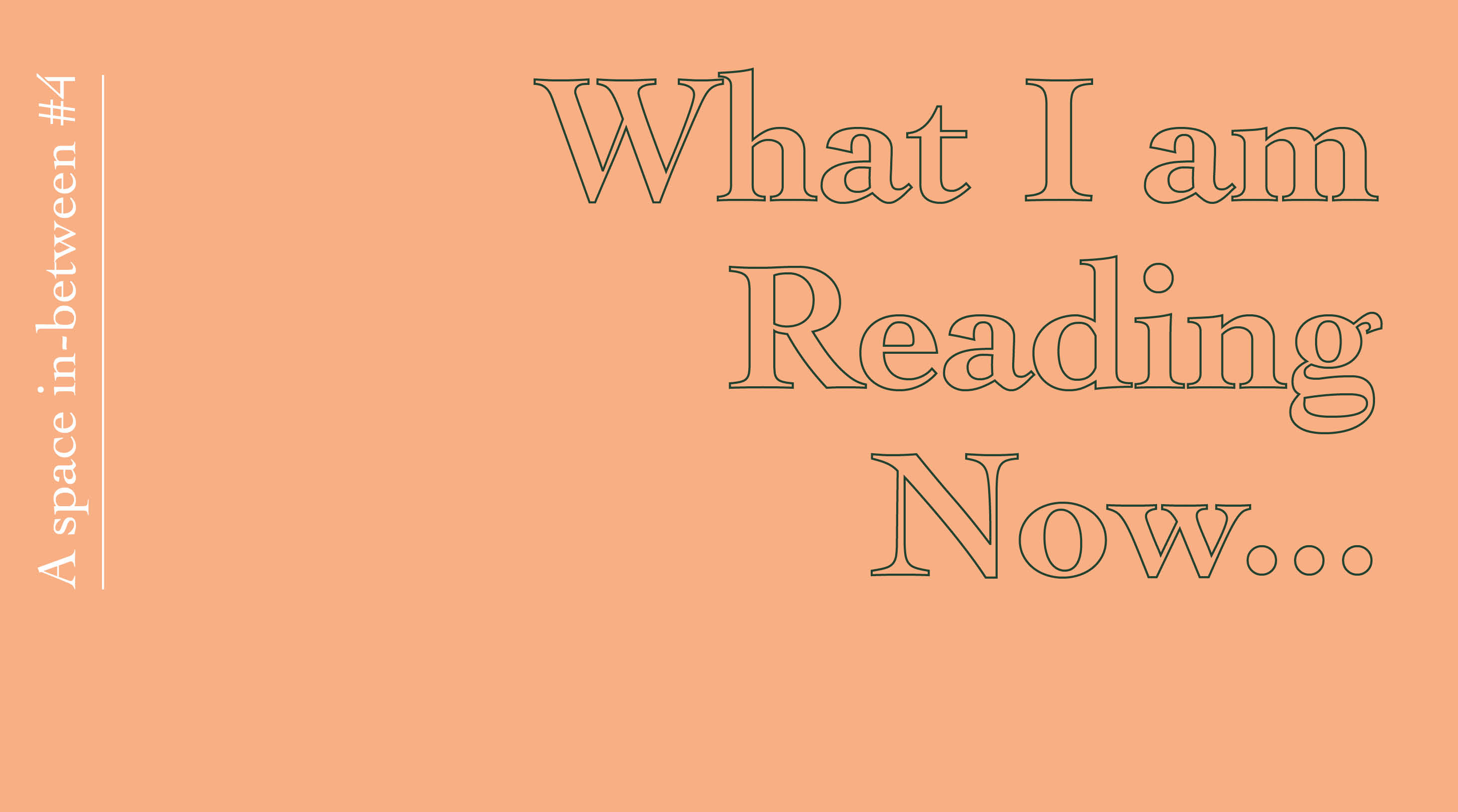What I am Reading Now…
Jacob V Joyce
The wood through the trees
July 2022
My youth, specifically my experience of secondary school education, was characterised by acts of mundane fugitivity. School was a place shrouded in an anxious dread, a sense of doom which can only be calculated by my constant attempts to escape its corporeal and psychic enclosures. I did not understand or have the words to articulate the somatic responses it elicited in me then, but I knew that I wanted to escape. Like so many teenagers I was always looking for an opportunity to disrupt the lesson, searching for a window to consider something less alien, most of all, for an opportunity to flee. The thing I wanted desperately was to relax beyond the punitive gaze of institutions and find moments to consider who I was outside of hetero-normative, Eurocentric expectations of my identity (although I would not of used those words to describe it.) School was a place where my identity was endlessly explained to me, in brutal cries of derision and subtle subtexts of the cannon. The only place where I could forge my own identity was in brief moments of mutinous or solitary escape.
“the history of black thought, that’s actually not the thought of canonical thinkers, just, you know, the thought of most folks, is devoted to this labour of trying to produce an outside, trying to create an opening which is often only discernible belatedly and its discernible as it becomes either marked as crime or as its subject to a new form of enclosure” – Saidiya Hartman, Speaking at The Black Outside 2016 (available on YouTube.)
Forging notes, faking injuries, scanning the perimeters of my school for unlocked gates, fences to jump or gaps in the school’s CCTV systems were just some of the ways this fugitivity manifested. Having grown up in South London where every paragraph of residential streets is illustrated by lush green parks and commons, my destination was always to be in nature. If not in nature, then in the abandoned industrial spaces that nature had begun to reclaim. The outside of school was constituted by overgrown, unseen, forgotten places, spaces of petit marronage where computer chairs, mouldy sofas, shopping trolleys and used condoms implied the nature of the terrain.
The landscapes these books describe are very soothing to wander through, wayward streams in transgressive valleys that snake between monoliths of imperial knowledge systems. I don’t want to crush them into this archipelago, each text is its own island and deserves to be visited for at least a day. Maybe you could check them out when you are meant to be working, sneak away and hide in the ideas they play with. Quick, while no one’s looking.
Jacob V Joyce is a multidisciplinary artist whose practice amplifies historical and nourishes new queer and anti-colonial narratives. They are currently researching the cultural legacies of informal Black British arts education for a PhD supported by C.R.E.A.M (The Centre for Research in Education and Arts Media) and 198 Cal Arts Learning Brixton.
Reading
Pedagogy of the Oppressed, Paulo Freire (Penguin Classics, 2017)
Teaching to Transgress: Education as the Practice of Freedom, bell hooks (Routledge, 1994)
in nearby bushes, Kei Miller (Carcanet Press Ltd, 2019)
Cruising Utopia: The Then and There of Queer Futurity, José Esteban Muñoz (New York University, 2009)
Militant Education, Liberation Struggle, Consciousness: The PAIGC education in Guinea Bissau 1963-1978, Sónia Vaz Borges (Peter Lang GmbH, Internationaler Verlag der Wissenschaften, 2019)

Please note the views published in What I am Reading Now… are personal reflections of the contributors.
These may not necessarily represent the views of the University of Dundee.
———
Previous Issue: MADE YOU LOOK, June 2022
Next Issue: Rae-Yen Song, August 2022
